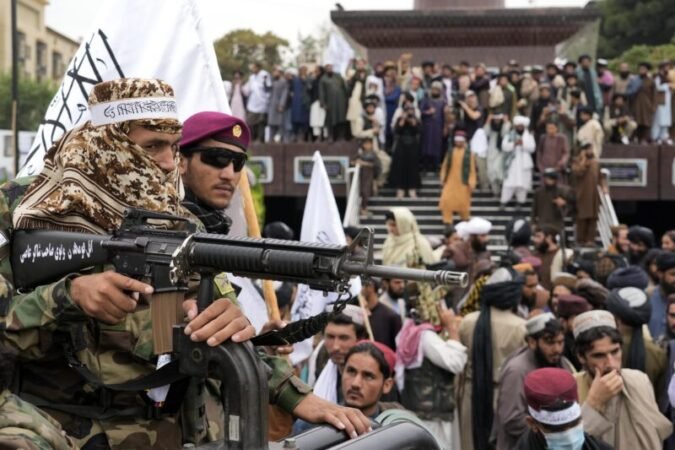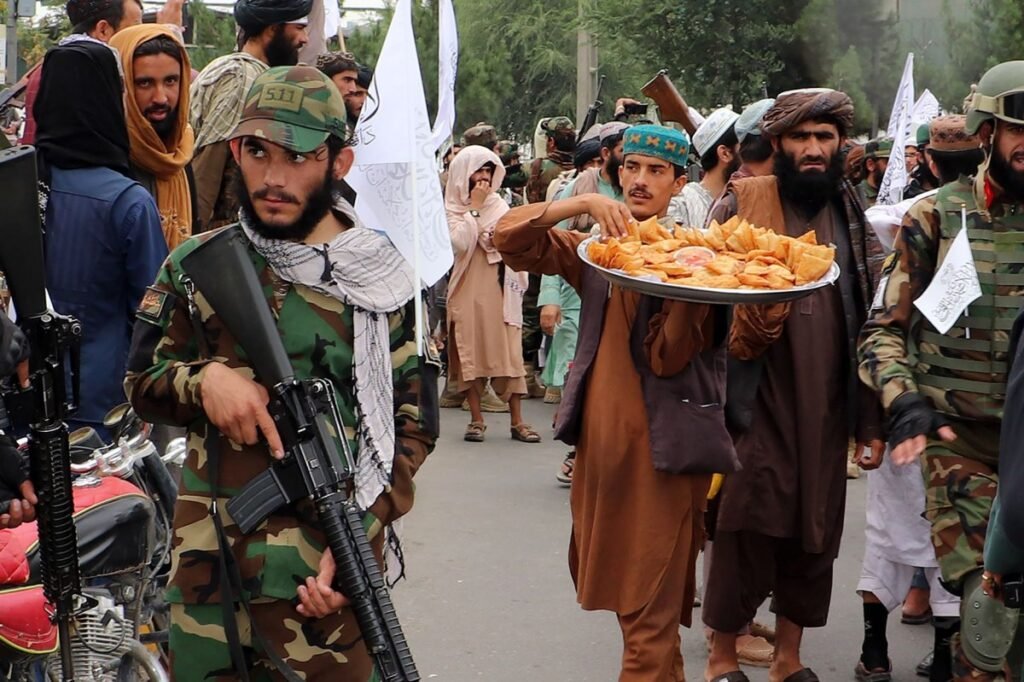Crisis Point: Afghanistan’s Bleak Future under the Taliban

15th August is an important date; it marks India’s Independence and another consequential event- the return of the Taliban to Afghanistan when its then-president Ashraf Ghani fled the country in 2021. The major event preceding the escape of the President was the signing of the ‘Doha Agreement‘ between the US and the Taliban leaders in 2020. Under the agreement, the US decided to call off all its operations in Afghan lands in return for the Taliban’s promise of establishing a state with women’s rights, amnesty for people who supported the US and a safe space to dissent. After taking over Kabul, the Taliban fundamentally changed Afghanistan from a democratic country to an Islamist Emirate. Not even a single country has recognised the Taliban Rule. During their transition from an insurgent group to a functional government, the commoners have struggled the most with rising economic and security challenges, food supply shortages, and high inflation. The Taliban government is ill-equipped to tackle these emerging crises without comprehensive reforms in its administration.

Economic Crisis and Lack of Inclusive Government
Mass unemployment increased malnutrition rate, and the collapse of the housing market are a few tangible signs of an economic catastrophe in Taliban-led Afghanistan. In June 2022, the UN Security Council reported the Afghan economy had contracted by an estimated 30%-40% since the takeover. However, the Taliban inherited what was an already weak state, as even in the past, Afghanistan survived on foreign aid from financial institutions and other nations. But once the US backed off, all the international assistance slowly stopped, followed by the imposition of sanctions by the West and the freezing of Afghanistan’s foreign assets and reserves. To compensate, the Taliban decided to increase tax revenues and coal exports to take advantage of competitive global prices. The agricultural sector has also been affected by natural disasters, such as droughts, flash floods and the June 2022 earthquake, making matters worse. Moreover, Afghanistan has been the largest producer of Opium (used to make heroin), but in April 2022, the Taliban announced a ban on growing poppies, forcing another setback to its economy.
So far, the Taliban has not formed an inclusive government. They refer to their government as the Islamic Emirate of Afghanistan, organised under a supreme leader, the emir. The Taliban took control of all the central ministries and offices and appointed interim staff of senior leaders within the Taliban. They also dissolved the Ministry of Women’s Affairs and the Afghanistan Independent Human Rights Commissions, dismantled the Afghan Parliament and further reinstated theMinistry for the Propagation of Virtue and Prevention of Vice in the state, working as a harsh ‘Morality Police’ with the sole purpose of enforcing restrictions on the behaviour deemed un-Islamic. Over 90% of all top positions are occupied by the male ethnic Pashtuns, leaving little space for other minorities and females in the government. Not only are there no women in the current government under the Taliban, but they have also denied women access to education, employment, and basic freedom.
Human Rights and Women’s Issues
The situation of human rights has become increasingly problematic as Afghan journalists, former security forces, ethnic and religious minorities, and women’s activists are being subjected to torture, forced disappearances and extrajudicial killings. The Taliban claims commitment towards ensuring the security of its people. However, according to UN data, over 2000 civilian casualties were reported between August 2021 and mid-June 2022. About 50% of the casualties were related to the actions of a single radical group, Islamic State-Khorasan (IS-K).
As per the agreement between the Taliban and the US before the withdrawal of US troops, the Taliban promised, “We are going to allow women to work and study…. women are going to be very active but within the framework of Islam.” However, soon after the takeover, clothing regulations and movement restrictions without a male chaperone were enforced. The Taliban also reneged on an earlier promise by prohibiting girls from attending secondary education, affecting around 1.1 million pupils and provoking widespread criticism in the international forum. With such gender-biased restrictions, female participation in the labour force has shrunk from 22% in 2019 to 15% in 2021. The rate of child marriages has also increased. According to Sima Bahous, UN Women Executive Director, “Decades of progress on gender equality and women’s rights have been wiped out in mere months.”

Fake Promises of Anti-Terrorism
Even after the Doha Agreement, there was significant scepticism regarding whether the Taliban would uphold their counterterrorism commitments. International observers were concerned about the Taliban’s connections with terrorist organisations, particularly al-Qaeda, posing a direct threat to regional and global security. Before the takeover, the experts worried that Afghanistan could become a safe haven for terrorists, resulting in attacks against the West and its allies. Despite the Taliban’s promise that “Afghanistan’s soil will not be used against the security of any other country”, a recent US drone strike killed al-Qaeda leader Ayman al-Zawahiri in Kabul, who was residing in the home under a Taliban aide. The strike incident raised a similar dilemma in the anti-terrorism scope: Should the US maintain pragmatic relations with the Taliban on humanitarian and economic issues, despite its repetitive violations of counterterrorism promises? History has shown that the policy of isolation or actively opposing the Taliban yield no fruitful results for either of the parties or the people of Afghanistan. Thus, after a cooling-off period, the West has to continue cautious talks on sensitive issues with the Taliban while simultaneously expanding investments in intelligence on terrorist threats.
Conclusion
After the withdrawal of the US, the Taliban-led Afghan Government lost all international support, followed by security challenges, climate-related issues and global inflation contributing to its deteriorating situation. The Taliban has successfully suppressed free speech and organised political activities with their carefully applied, particular instances of arrest, torture and power of coercion. Nevertheless, few regional actors, such as Pakistan, Iran, China and Russia, have kept their embassies open in an attempt to engage with the Taliban- without giving it formal recognition.
As Justine Fleischner, Director of research at Afghan Peace Watch, said, “The Taliban has clearly prioritised its religious and ideological agenda over the economy and the humanitarian needs of the Afghan people.” Therefore, the West’s strategy of ‘Aid Conditionality’, i.e. to moderate the Taliban’s behaviour on women’s rights and other humanitarian issues in return for funding, has undoubtedly failed. The West has to develop better mechanisms that prevent the Afghan population from being punished for the sins of the Taliban. Other countries should continue to provide aid for basic human needs and work in sync with the Taliban on macroeconomic management to stabilise the economy. It is imperative to keep the focus on critical agendas such as human rights- especially those of girls, women and minorities while maintaining international consensus on the non-recognition of the Taliban government and enforcing sanctions on individual leaders of the regime to maximise global leverage.



















